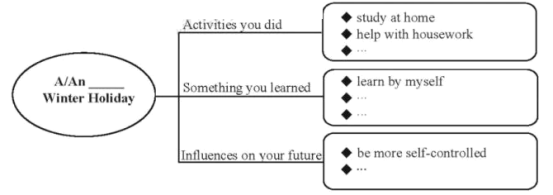题目内容
When you hear the world hero, you may think of someone like Mahatma Gandhi or Nelson Mandela. But there are also "everyday" heroes-they may not be _______ to the public, but they do what they can to help _______ people's lives as well. Everyday heroes are normal people who are working to make the world a better place. _______ them is Robert Lee.
Lee grew up in New York City. _______ his family was not rich, he learned from a young age the importance of _______ the waste of food. When in college, he was part of a student group that gave out leftover(剩余的)food to _______ people. This experience made him realize how _______ the problem of food wastage actually was.
After he left university, Lee and a friend set up a(n)_______ called Rescuing Leftover Cuisine(RLC). Its purpose is to collect _______ food from restaurants and send it for free to shelters(收容所)and food kitchens. Volunteers ________ the food from restaurants around the city and hand it out to those in need.
RLC operates ________. Using an app developed by Lee's team, restaurants ________ how much leftover food they have each day. Then volunteers are sent to fetch it. The ________ is usually short, so volunteers can just do their deliveries(递送)by ________ from the restaurants to the shelters. Lee believes this is a quick way of delivery.
So far, Lee and his team have successfully ________ over 150,000 kilograms of food, serving almost 300,000 ________ to people who need them. Lee has shown that a ________ action can help people around us greatly. ________ may have a greater influence than we imagine. When Lee is asked __________ his next plan is, he says there's still a lot to do. "It's just the ________. With more restaurants, who knows how much more we can do."
1.A.safe B.close C.friendly D.well-known
2.A.record B.share C.improve D.manage
3.A.Under B.Beside C.Among D.Opposite
4.A.If B.As C.When D.Though
5.A.storing B.avoiding C.burning D.recycling
6.A.sick B.blind C.lonely D.homeless
7.A.easy B.serious C.funny D.strange
8.A.club B.school C.business D.organization
9.A.cold B.cheap C.unsold D.uncooked
10.A.pick up B.go over C.pay for D.throw away
11.A.badly B.quietly C.simply D.slowly
12.A.report B.notice C.discuss D.consider
13.A.visit B.break C.meeting D.distance
14.A.flying B.walking C.skating D.shipping
15.A.saved B.heated C.lent D.grown
16.A.jobs B.meals C.rooms D.seats
17.A.small B.secret C.direct D.social
18.A.It B.He C.You D.They
19.A.who B.when C.what D.where
20.A.need B.time C.promise D.beginning
 开心练习课课练与单元检测系列答案
开心练习课课练与单元检测系列答案T-shirt (men's) Short-sleeved shirt. Washable. Made of cotton. Sizes: S (35/37) M (38/40) . L (41/43) , XL (44/46) Order number: England T-shirt KQ8149 dark blue Scotland T-shirt KQ 8151 dark green Wales T-shirt KQ8279 dark red $10 |
Three-quarter length jacket (women's) Made of fashionable leather (皮革) Fully lined. Length 34 ins. Do not hand clean. Sizes: 10, 12, 14, 16, 18 Order number: CQ 8200 dark blue CQ 8201 dark brown $100 (buy three get one free) INSURE YOUR LEATHER JACKET against being stolen and accidental damage For details see Page 1143. |
Swimsuit (women's) Soft and comfortable. Made of: 80% silk 20% nylon. Sizes:10, 12, 14, 16 Order number: GQ 9292 dark brown GQ9963 dark blue $15 |
1.What you have just read is a/an ______________.
A.ad for clothes B.movie review C.news report D.food order
2.From the passage above, we can know that ____________.
A.the swimsuit is made of silk and cotton
B.there are five sizes available for the T-shirts
C.the order number of the dark blue jacket is CQ 8200
D.both the T-shirt and the jacket can be washed by hand
3.How much do you need to pay if you get four jackets?
A.$200. B.$300. C.$400. D.$ 500.



